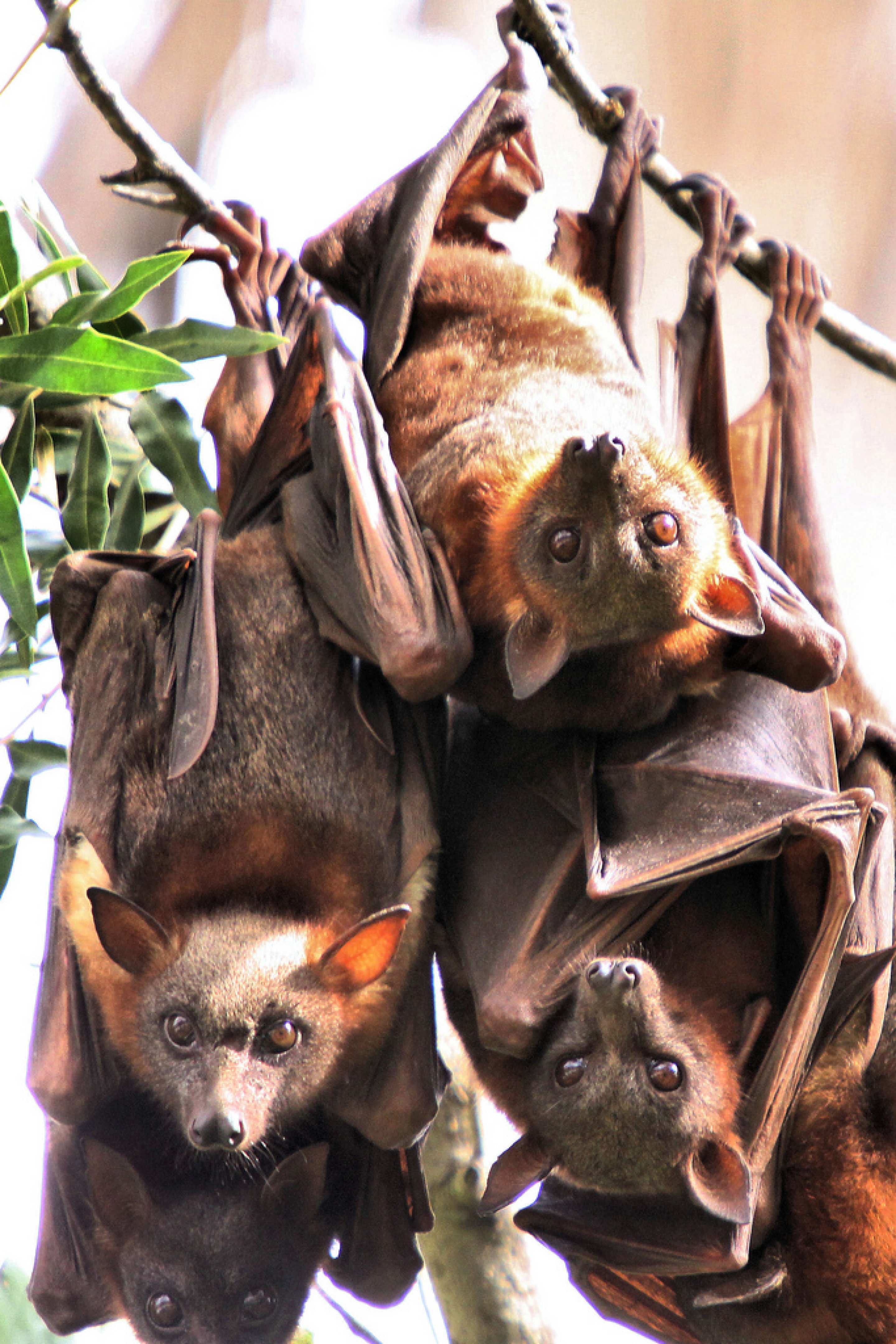
Lack of knowledge on animal disease leaves humans at risk
Researchers from the University of Sydney have painted the most detailed picture to date of major infectious diseases shared between wildlife and livestock, and found a huge gap in knowledge about diseases which could spread to humans.

Little red flying foxes, a species of megabat, are a source of zoonotic viruses that are potentially fatal to humans including Hendra virus. Image: CC BY-SA 3.0/ Mdk572
Published in the Proceedings of the National Academy of Sciences (PNAS), the world-first study has found that just ten diseases account for around 50 per cent of all published knowledge on diseases at the wildlife-livestock interface. It is based on an analysis of almost 16,000 publications spanning the last century.
In the wake of recent virus outbreaks of wildlife origin, such as Hendra virus in Australia, Ebola virus in West Africa, and Middle East Respiratory Syndrome (MERS) coronavirus in the Arabian Peninsula, more research must focus on this wildlife-livestock interface to evaluate risks and improve responses to disease epidemics in animals and humans, the researchers argue.
"Oftentimes we don't prioritise animal health until it impacts on human health, which means we miss the opportunity to manage diseases at the source," said co-author Dr Siobhan Mor from the Faculty of Veterinary Science.
"In the case of emerging diseases, we tend to react to large outbreaks of disease in humans, rather than preventing or managing the infection in animals, likely because we still don't know a lot about the role of these microbes in the ecology of wildlife and livestock disease."
Researchers applied new methods only recently used in the animal health realm to identify which diseases and types of animals were most prevalent in available published literature. They measured how research has changed over time and how the diseases and animals involved differ by geographic region.
The results show the bulk of published research over the past century has focused on known zoonoses - diseases that are shared between animals and humans - to the detriment of studies on diseases affecting only animals.
"We know far less about the range of diseases that impact on animal health and welfare. This is particularly true for wildlife, which remains very poorly funded," said co-author Dr Anke Wiethoelter.
Paradoxically, this also means we know less about the diseases that could be a precursor to infectious diseases in humans.
"In the case of Hendra virus in Australia, for instance, there are still big question marks around how the virus is transmitted between bats and horses, and factors influencing its transmission. And we now know that bats can harbour many germs, but the research investment into wildlife disease ecology simply isn't there."
The study also revealed strong links between publication rates, media coverage and funding levels for certain diseases. Two diseases in particular - avian influenza and bovine tuberculosis - were found to have a strong association between frequency of publication, media attention and funding levels, highlighting social and political influences on available research.
"Public interest comes and goes, but without sustained investments, research on this important interface suffers," said Dr Mor.
The study was co-authored by Dr Anke Wiethoelter and Dr Siobhan Mor from the University of Sydney's Faculty of Veterinary Science and Marie Bashir Institute, Dr Daniel Beltrán-Alcrudo from the Food and Agriculture Organization of the United Nations (FAO), and Professor Richard Kock from the Royal Veterinary College at the University of London.
Related articles
Resetting the table to halt expanding waistlines
Can farmers, producers and regulators work together at all points of the food supply chain to help curb Australia’s growing obesity problem?

Scientists should take a leaf out of wellness bloggers' books
How can we distinguish credible wellness information from unfounded pseudoscience? And why is it that wellness gurus are often taken more seriously than scientists? Jackie Randles writes.
How mobile phones could save us from obesity
A world-first intervention designed by Charles Perkins Centre researchers specifically for young people found mobile phones could improve health and halt weight gain.
Starchy carbs, not a Paleo diet, advanced the human race
Starchy carbohydrates were a major factor in the evolution of the human brain, according to a new study co-authored by researchers from the University of Sydney's Charles Perkins Centre and Faculty of Agriculture and Environment.
Health benefits of dog ownership explored in new research node
Man's best friend is set to become his lab partner, with the launch of a research node on the health effects of dog ownership at the University of Sydney's Charles Perkins Centre.
Cancer substantially affects cognition: international research
International research team finds even localised cancer is associated with sustained cognitive impairment.
Thousands of dollars in scholarships still available for 2016
If you’re studying at Sydney next year there are numerous scholarships still open for new and current students across many study areas including engineering, the sciences, education, pharmacy, dentistry, nursing, medicine, social work, engineering, and business.
We will find a way to predict the spread of disease
Software 'agents' modelled on real-life individuals will be used by University of Sydney researchers to develop high-precision computer models that can predict where or when an epidemic may strike.
'Rat vision' may give humans best sight of all
Humans have the best visual capacity because our full stereo vision combines with primitive visual pathways to spot danger quickly, a study led by the University of Sydney has found.
Staff honoured in Women of Influence list
Five academics have been named leaders in innovation and global development in the Australian Financial Review and Westpac 100 Women of Influence list for 2015.